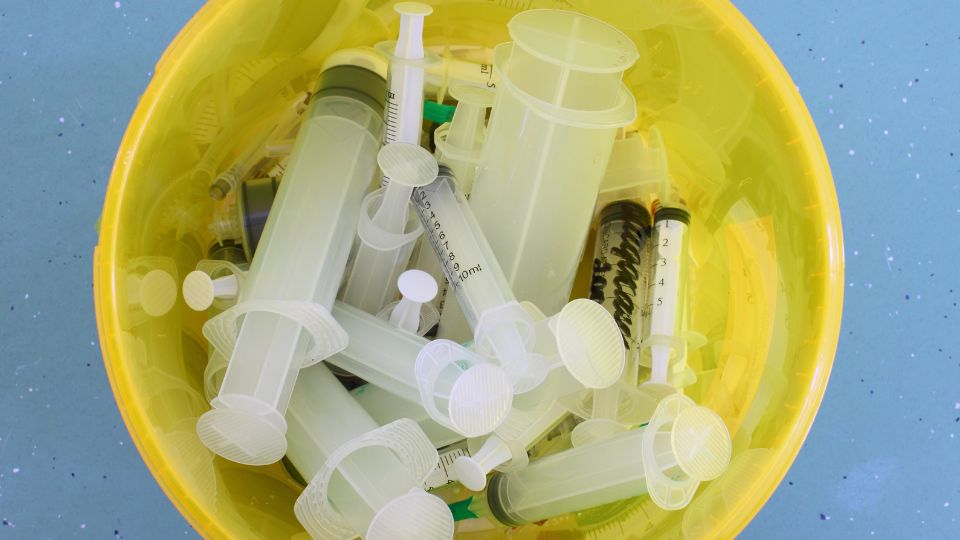
A Quick Summary
- Cutting-edge technologies are transforming hospital waste management.
- Innovations aim to improve safety, efficiency, and environmental impact.
- UK businesses can leverage these advancements to enhance their waste disposal practices.
Hospital waste disposal is a critical aspect of healthcare management.
The improper handling of medical waste can lead to severe health risks, environmental damage, and regulatory penalties.
As the healthcare industry evolves, so too do the methods for managing hospital waste.
For UK business owners involved in healthcare or waste management, staying abreast of these innovations is crucial.
This blog explores the latest advancements in hospital waste disposal, highlighting how they can benefit businesses.
Table of Contents
- 1. Innovative Hospital Waste Segregation Systems
- 2. On-Site Hospital Waste Treatment Technologies
- 3. Innovative Hospital Waste-to-Energy Technologies
- 4. Digital Waste Management Solutions
- Conclusion

1. Innovative Hospital Waste Segregation Systems
One of the primary innovations in hospital waste disposal is advanced waste segregation systems.
These systems use automation and smart technology to ensure accurate separation of hazardous and non-hazardous waste.
Automated waste segregation not only reduces the risk of contamination but also enhances the efficiency of waste processing.
- Smart Bins:
Equipped with sensors and AI, smart bins can detect the type of waste deposited and sort it accordingly.
This technology minimises human error and ensures compliance with waste segregation protocols.
- RFID Tags:
Radio-frequency identification (RFID) tags are being used to track and manage waste from the point of generation to disposal.
This helps in maintaining a transparent and accountable waste management process.

2. On-Site Hospital Waste Treatment Technologies
On-site waste treatment technologies are gaining traction in hospitals due to their ability to reduce waste volume and mitigate the risks associated with waste transportation.
- Autoclaving:
This method uses steam sterilisation to treat infectious waste, making it safe for disposal.
Autoclaving is highly effective and can be integrated into hospital waste management systems.
- Microwave Treatment:
Microwave treatment involves using microwave radiation to disinfect medical waste.
This method is quick and can handle a variety of waste types, making it a versatile option for hospitals.
- Chemical Disinfection:
Innovative chemical treatments are now available that neutralise hazardous waste without the need for incineration, reducing the environmental footprint.

3. Innovative Hospital Waste-to-Energy Technologies
Transforming hospital waste into energy is an innovative approach that addresses both waste disposal and energy generation challenges.
- Pyrolysis:
This process involves heating waste in the absence of oxygen to produce bio-oil, syngas, and char.
These by-products can be used as alternative energy sources, contributing to a hospital’s sustainability goals.
- Gasification:
Similar to pyrolysis, gasification converts organic waste into synthetic gas, which can be used to generate electricity or heat.
This technology not only reduces waste volume but also provides a renewable energy source.

4. Digital Waste Management Solutions
Digital solutions are revolutionising waste management by providing real-time data and analytics to optimise waste disposal processes.
- Waste Tracking Software:
This software helps hospitals monitor waste generation, segregation, and disposal in real-time.
The data collected can be used to improve waste management practices and ensure regulatory compliance.
- IoT Devices:
Internet of Things (IoT) devices are being used to monitor waste levels in bins and schedule timely collections.
This reduces the risk of overflow and ensures that waste is collected and treated promptly.

Conclusion
Innovative hospital waste methods are driving significant improvements in safety, efficiency, and environmental sustainability.
UK business owners in the healthcare and waste management sectors should consider integrating these advanced technologies to enhance their operations and meet regulatory standards.
By adopting these innovations, businesses can not only improve their waste disposal practices but also contribute to a cleaner and healthier environment.







